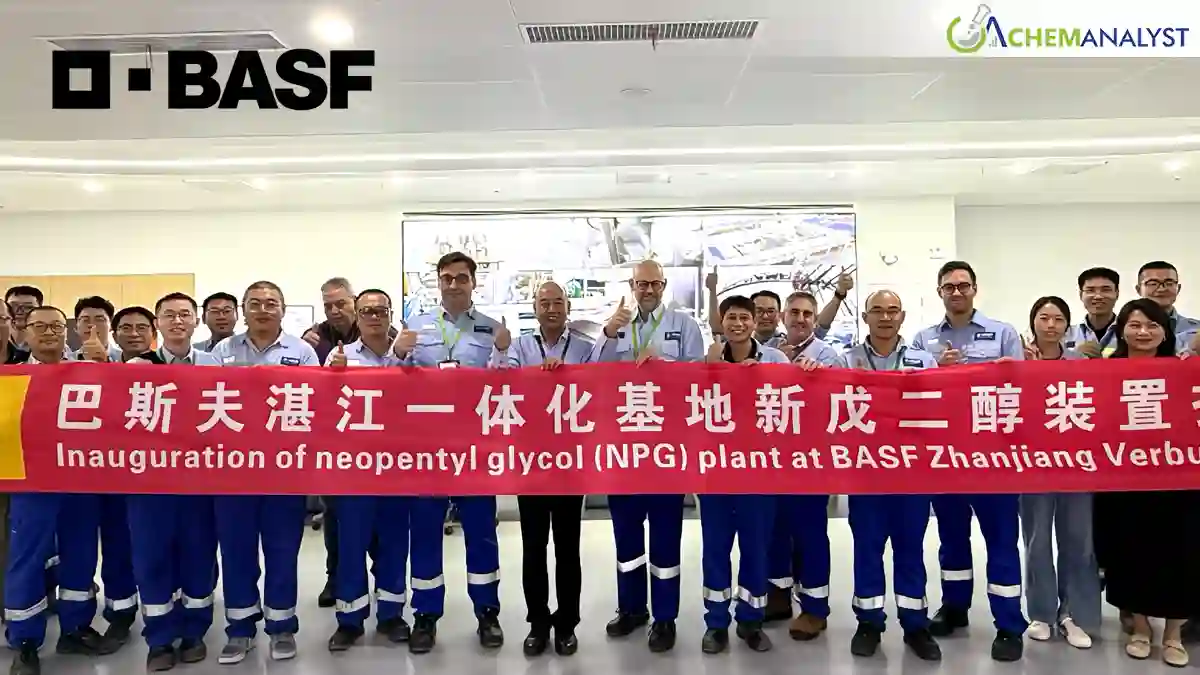Welcome To ChemAnalyst

This strategic move increases BASF’s Neopentyl Glycol (NPG) capacity to 335,000 metric tons annually, enhancing its ability to meet the escalating Asia Pacific demand for low-emission powder coatings.
Chemical giant BASF's Intermediates division has marked a major milestone with the official inauguration of its new neopentyl glycol (NPG) plant at the Zhanjiang Verbund site in China. The new facility, boasting an impressive annual production capacity of 80,000 metric tons, has commenced operations, successfully completing its first customer delivery in October.
The startup of this state-of-the-art plant dramatically bolsters BASF's global NPG capacity, increasing it from 255,000 to 335,000 metric tons per year. This substantial expansion solidifies BASF's standing as one of the world’s foremost NPG manufacturers, equipping the company to better serve the rapidly growing market in the Asia Pacific region.
NPG is a vital intermediate, primarily utilized in the production of powder coating resins. Powder coatings are increasingly popular across a diverse range of industries, including building materials, general industry, home appliances, furniture, automobiles, and 3C products (Computer, Communications, and Consumer Electronics). Their appeal is largely due to their environmental advantages; specifically, their low volatile organic compounds (VOC) content. Using powder coatings allows manufacturers to comply with stringent VOC emission standards by reducing VOC release by up to 50% compared to traditional liquid coatings. Beyond coatings, NPG is also a key component in the manufacture of lubricants, plasticizers, and pharmaceuticals such as ibuprofen.
Concurrent with the plant inauguration, BASF unveiled NEOL® Neopentylglycol solution 90% rPCF AP, a new NPG product line with a significantly reduced product carbon footprint (rPCF), sourced exclusively from the Zhanjiang facility.
Preliminary assessments suggest that the PCF of the NPG produced at the Zhanjiang Verbund site is lower than that of the same product manufactured at BASF’s existing NPG plants across Asia. This lower carbon intensity is attributed to several key factors inherent to the new site: the implementation of highly efficient production technologies, the benefits derived from the integrated Verbund system, the strategic use of lower carbon footprint chemical feedstocks, and the site’s commitment to running on 100% renewable electricity.
Michael Becker, Senior Vice President, Intermediates Asia Pacific, BASF, emphasized the strategic importance of the new plant. "The new NPG plant bolsters our local production footprint by strengthening our speed and responsiveness to increasing customer demand for eco-friendly powder coating resins across Asia Pacific," Becker stated. He added that this expansion "represents an important step toward our vision of being the preferred partner for sustainable intermediates."
We use cookies to deliver the best possible experience on our website. To learn more, visit our Privacy Policy. By continuing to use this site or by closing this box, you consent to our use of cookies. More info.
